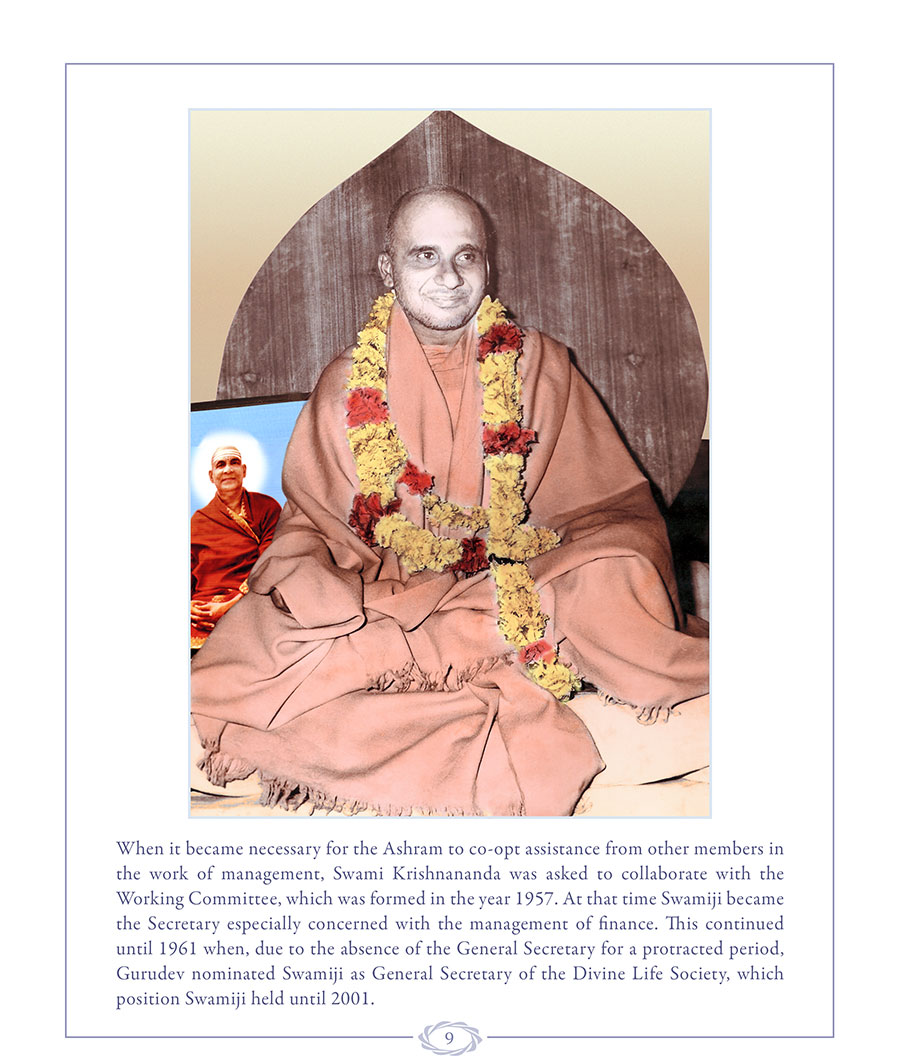The Relevance of the Bhagavadgita to Humanity : 9.2. Swami Krishnananda.
--------------------------------------------------------------------------------------------------------
Friday, January 29, 2021. 07:36. AM.
Chapter 9: The Classification of Society-2.
The First Six Chapters of the Bhagavadgita
(Spoken on Bhagavadgita Jayanti)
----------------------------------------------------------------------------------------------------------
‘Society’ is an intriguing term. It begins with your own body, which is also a little society. It extends itself to all its outward relations, and ordinarily it is difficult to understand what are your outward relations. It requires a little bit of tutoring, some sort of an education. In a purely egoistic attitude, one may imagine that one is dependent on nothing at all. “I am a totally independent person. I owe nothing to anyone, and I seek nothing from any person in the world.” This is not true, because such an independent existence is not sanctioned by the nature of things. It is an ignorance of the state of affairs that prompts a person to imagine this.
So, positioned as you are in a particular context in human society, are you not required to contribute your might to the solidarity of this large body of which you are a part? You have to sustain the body in order that you may exist as a limb thereof. You want to be independent of the whole to which you belong, but this is not possible. The concept of society takes us to philosophical considerations, and it ranges beyond the philosophy of ordinary social welfare. We need not go into that depth at present, because the Bhagavadgita will take us to that point also in its coming chapters. But pure common sense will tell you, apart from its philosophical foundations, that you owe a debt to human society. There is none who does not contribute something for your welfare. Sometimes it is known, sometimes it is not known. Sometimes it is visible to the eyes, sometimes not. In Indian tradition, this is the reason behind the great injunction of the Pancha Mahayajnas that every person should perform the five great yajnas.
Everyone has an obligation to the welfare of every living being, not merely human beings. You have an obligation to your parents, and even the parents of your parents, your ancestors. Sometimes the obligation is carried to even sixteen generations ahead. In practice, this is adumbrated in the performance of the libations and rituals we call shradas. Sixteen generations are remembered, and their influence is accepted as part of the blessing that we have received. Gratitude is, again, a great virtue. Ingratitude is a vice. Not to accept that we have received beneft from others is egoistic arrogance, and it will defeat its own purpose. It is not merely a vice; it is a self-destructive tendency. It will ruin one’s own self. You are trying to be ungrateful to that which has sustained you, which is going to sustain you even in the future, and without which you may not even live.
Each person has a duty in this world. Now, this is a very important point which is brought out in many a way through the injunctions occurring in a variegated manner in different verses of the Bhagavadgita. Everyone has a duty. There is no one who can be free from duty. But what is duty? This was the question. In the beginning itself it was mentioned, “I cannot understand what my duty is. I am floundering. I am completely upset with my very basic understanding. What is my obligation at this moment?”
To be continued ....
===============================================================





Comments
Post a Comment